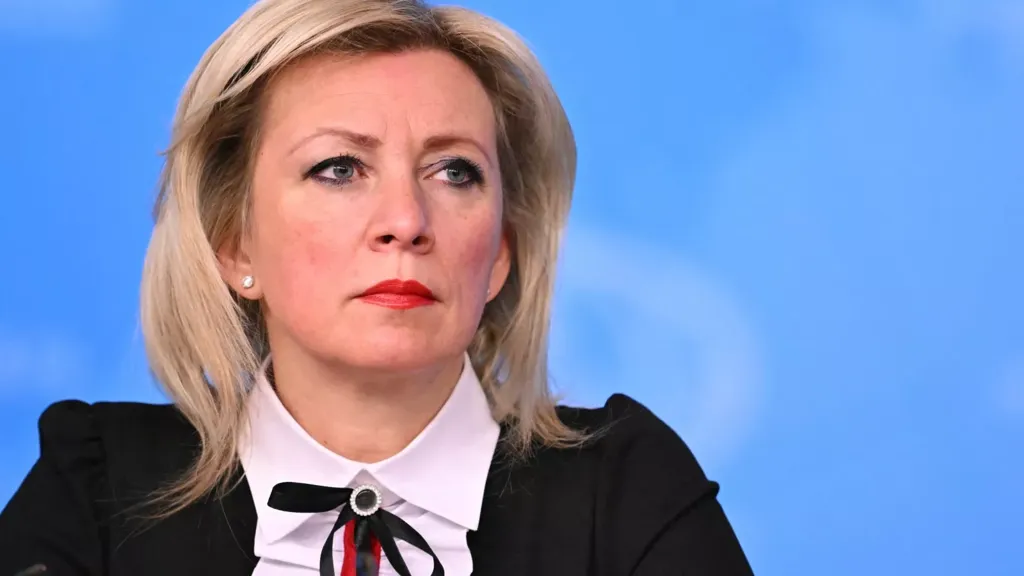Russia listed what it said were the results of deadly Ukrainian drone strikes that hit its civilians over the past week, as Moscow faces anger over its massive aerial attack on Kyiv, which hit a residential building and killed at least 24 people, including children.
Moscow is seeking to dampen the American response to its latest strikes on Kyiv, which took place overnight into Thursday, August 28. The strikes also hit buildings belonging to the European Union and the British Council, prompting outrage from London and Brussels.
The attack risked the ire of U.S. President Donald Trump, who is trying to broker an end to Russia's invasion of Ukraine, and who has threatened Moscow with punishing secondary tariffs and other action if it does not make peace soon.
Maria Zakharova, spokeswoman for the Russian foreign ministry, accused Ukraine's western allies of hypocrisy over their criticisms of Moscow in light of the Kyiv strikes and others in recent months.
Russian aerial attacks in recent months have outsized those launched by the Ukrainians, who are defending against Moscow's full-scale invasion, launched in February 2022.
At a press briefing on Friday morning, August 29, Zakharova detailed Ukrainian drone strikes from the previous seven days that she said had affected 140 Russian civilians, and said a church, bus, and car were among the objects hit.
Nineteen civilians died, Zakharova said, including one child, and 121 were injured, including eight minors. "We don't see any complaints from all those who profess human rights in the West. They keep silent," Zakharova said.
Newsweek has contacted the Ukrainian foreign ministry for comment.
Trump has expressed frustration with Russian strikes before as he tries to bring about an elusive peace, an outcome he promised to deliver quickly when he took office in January 2025.
Negotiations are stuck on disagreements over recognition of territorial control and the future architecture of Ukrainian security guarantees.
Moscow has not yet felt the full force of American economic power. Secondary U.S. tariffs against Russian trading partners will test its financial resilience and the true strength of its international relationships -- and, crucially, its ability to sustain the Ukraine war.
The Trump administration has so far put additional tariffs on India for its purchases of Russian oil, putting pressure on Delhi to sever economic ties with Moscow. Others may soon face similar U.S. action as Russia's war thunders on.
Ukrainian President Volodymyr Zelensky has repeated his call for the U.S. and other global powers to respond strongly to Russia's actions by hitting Moscow with much tougher economic sanctions.
The Kremlin said Russia had targeted military infrastructure in its Kyiv strikes. A drone factory was among the structures hit.
"Russia must be held accountable for this strike, just as for every other strike against our state, our people, and every effort by the world to bring this war to an end," Zelensky said in a post on X on Friday.
"When instead of diplomacy Russia chooses ballistics, continues to modernize 'shaheds' for killing, and deepens cooperation with actors like North Korea, it means the world must respond accordingly.
"Strong sanctions, strong pressure, strong steps are needed so that the murderers do not feel impunity. Russia only understands strength, and demonstrations of strength are needed now. The United States, Europe, and the G20 countries have this strength."
Russia said it was compelled to invade Ukraine to defend its national security by stopping Kyiv's ambitions to join the U.S.-led NATO defensive alliance. It also accuses Kyiv of persecuting ethnic Russians in Ukraine.
But Ukraine says Russia launched an imperial war of conquest to end Ukrainian sovereignty and culture, and to fold it under Moscow's control rather than let it exercise its right to deepen ties with the Western world, such as through membership of the European Union (EU) and NATO.
